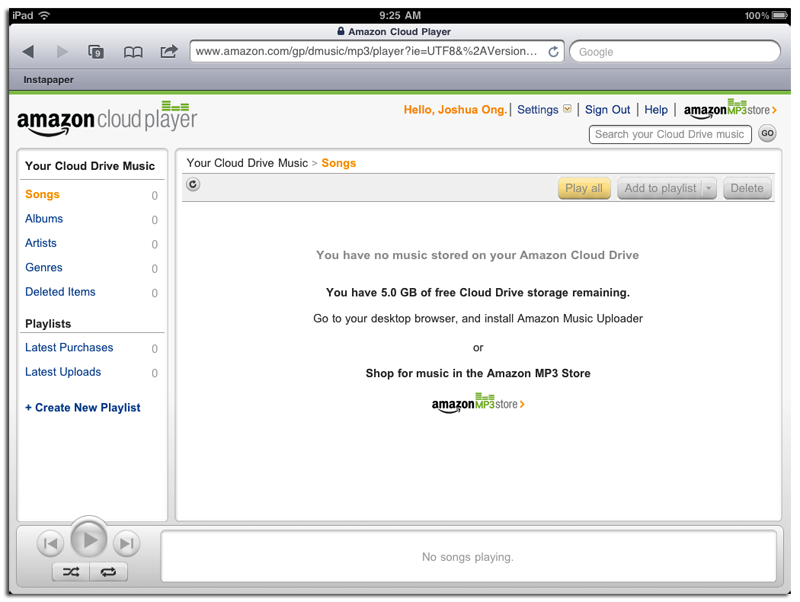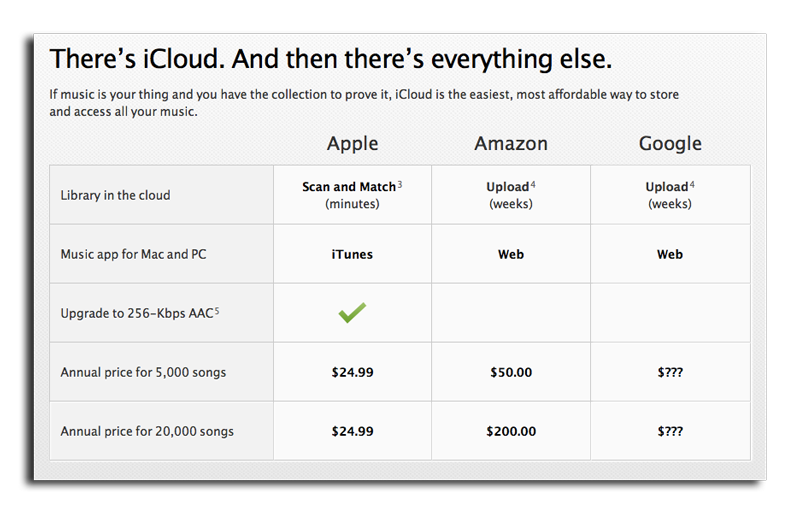MP3tunes ruling seen as victory for cloud-based music services
EMI and 14 other record companies sued MP3tunes LLC, alleging that the company's website allowed users to illegally copy their songs. A ruling from U.S. District Judge Wiliam Pauley in Manhattan let the company off the hook for a feature that kept one copy of a music file on MP3tunes' servers and made it available online to users who had an identical version on their hard drives, Reuters reported on Monday.
Pauley also ruled that users were responsible for infringements, although the defendants were liable for "contributory" copyright infringement in cases where rights holders notified them of infringement. MP3tunes CEO Michael Robertson was found liable for unauthorized songs that he transferred to his own personal music locker.
"While a reasonable person might conclude after some investigation that the websites used by MP3tunes executives were not authorized to distribute EMI's copyrighted works, the DMCA does not place the burden of investigation on the Internet service provider," the judge wrote.
The defendants' lawyers hailed the ruling as a "huge victory." Greg Gulia, a partner at Duane Morris who represents MP3tunes and Robertson. noted that "users can still download songs from publicly available websites, and store them without a separate license fee, so long as MP3tunes complies with takedown notices. The main takeaway is that MP3tunes' fundamental business model has been upheld."
Google and Amazon could stand to gain from the ruling, as both companies launched their digital music locker services this spring reportedly without renegotiating licenses. Amazon announced its Cloud Player and Cloud Drive service in March. But, music companies were apparently surprised by and displeased with the move.
Sony Music spokeswoman Liz Young responded to Amazon's launch by saying her company "was upset by Amazon's decision to launch the service without new licenses for music streaming."
"We hope that they'll reach a new license deal, but we're keeping all of our legal options open," Young said in an oblique threat of a potential lawsuit against the online reseller.
In May, Google unveiled its own music service, called Music Beta, but disappointed customers by not negotiating licenses to sell music.
The search giant had planned a "more robust version" of the service, but talks with the labels broke down. “Unfortunately, a couple of the major labels were less focused on the innovative vision that we put forward, and more interested in an unreasonable and unsustainable set of business terms," said Google executive Jamie Rosenberg.
Though Apple's upcoming iTunes Match feature resembles the MP3tunes' strategy of maintaining one centralized copy of a song, the iPod maker renegotiated licenses with the major music labels before announcing the service. The company will also presumably share its profits from iTunes Match with rights holders, though it's not clear exactly what kind of revenue split was agreed upon.
Apple boasts that the feature will take just "minutes" to scan and make a user's music library available in the cloud, compared to "weeks" of uploading to competing services from Amazon and Google.
iTunes Match has been described by some as a way for the record labels to earn back some profits from pirated music. Privacy activists, on the other hand, have expressed concerns that Apple could report users suspected of violating copyrights in iCloud to rights holders, exposing them to lawsuits. But, given the recent MP3tunes ruling, Apple may not be legally obligated to search for copyright infringement in iCloud, though it will still be required to comply with takedown requests.
Meanwhile, Research in Motion is also rumored to be creating its own music service, which is expected to cost $5 a month for 50 songs.
 Josh Ong
Josh Ong














 William Gallagher
William Gallagher
 Mike Wuerthele
Mike Wuerthele



 Wesley Hilliard
Wesley Hilliard

 Mike Wuerthele and Malcolm Owen
Mike Wuerthele and Malcolm Owen









16 Comments
I think my main concern with Apple searching my computer's music library is that with just a tweak it could search my entire computer for anything the company wanted to know about. How would I even know that such a search was done? Already there are programs on the web like Webex that search for specific programs to run their streaming service on people's computers. I don't trust them either. Who knows what data they are retrieving when connecting to my computer?
I think my main concern with Apple searching my computer's music library is that with just a tweak it could search my entire computer for anything the company wanted to know about. How would I even know that such a search was done? Already there are programs on the web like Webex that search for specific programs to run their streaming service on people's computers. I don't trust them either. Who knows what data they are retrieving when connecting to my computer?
I shouldn't worry about Apple too much, they are the least of your worries. Google on the other hand... Little Snitch nearly blew up when I installed Chrome.
I shouldn't worry about Apple too much, they are the least of your worries. Google on the other hand... Little Snitch nearly blew up when I installed Chrome.
Chrome os the biggest spyware.malware on the web today.
I shouldn't worry about Apple too much, they are the least of your worries. Google on the other hand... Little Snitch nearly blew up when I installed Chrome.
I sometimes think Apple should build Little Snitch right into the OS but I guess it is too complicated for the masses.
Quite a burn for Apple, wasting money on licenses where none are needed. I wouldn't be surprised if they submit amicus briefs in the appeal, supporting the music labels, in an attempt to screw Amazon and Google. Or maybe they will just breach their contracts with the labels, thumbing their noses at their agreements?
At any rate, my guess is that heads will roll at Apple. They don't like to cooperate when fighting makes them more money, and ISTM that giving money away for stuff they should get for free is anathema to them.